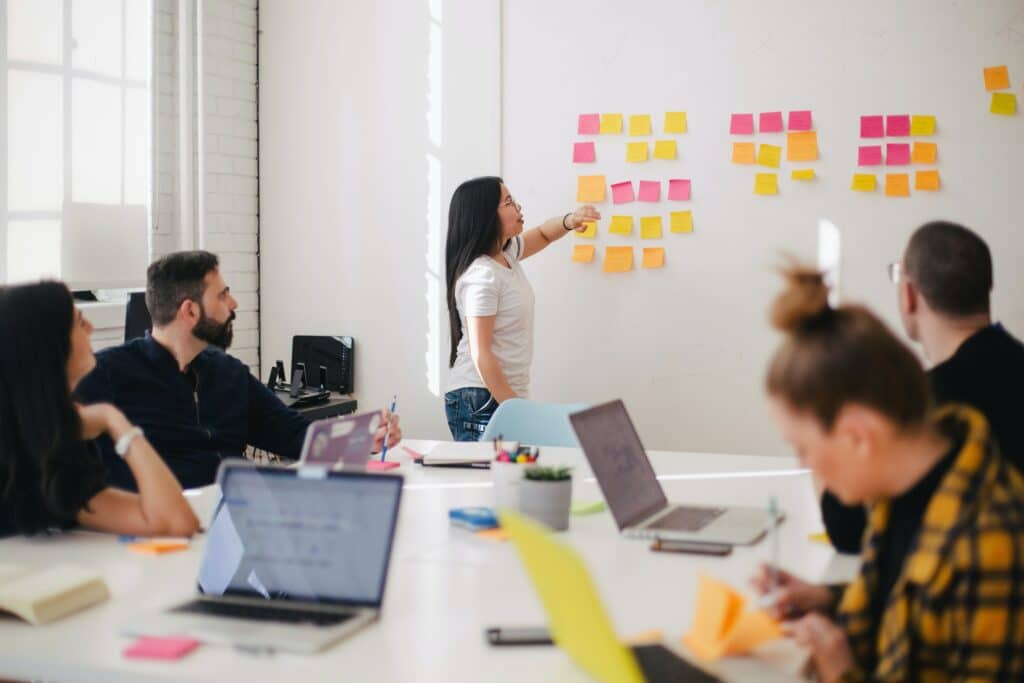
The issue of whether women have received equal treatment wherever they are is still present as we celebrate Women’s Month this year. As more people are become aware of gender equality, companies are attempting and making new efforts to treat both genders equally.
Nonetheless, gender bias still happens unintentionally in practice. The bias is noticeable in the unequal treatment of women at work, including unequal pay and an unbalanced ratio that contributes to high turnover.
The 2010 Equality Act stated the requirement for individuals to get equal pay regardless of gender, but in practice it still takes work to reduce the gap, as happened in Indonesia where women earn 23% less than men.
On the other hand, an unbalanced ratio between men and women in the workplace can cause gender inequality. It was reported that several Southeast Asian countries, such as Vietnam and the Philippines, had a low female-to-male ratio. In Vietnam, the ratio between women and men in top management is one to eight, while in the Philippines the number showed two to eight.
Moreover, women’s desire to leave the workforce is impacted by the unequal treatment they experience, where they feel unappreciated and unwelcome. It showed that 43% of women leaders are burned out and 29% of women are switching jobs or leaving the workforce.
We interviewed Sonal Shah and Keisha Mayuga, two women with extensive experience in the transport industry, about their encounters with gender bias.

With 18 years of expertise in catalysing urban change, Sonal is known as multi-sectoral professional who has a passion in sustainable transport, gender equality, and universal access. She also a founder of The Urban Catalyst and Executive Director of C-SEC (Centre for Sustainable and Equitable Cities).
Do you experience gender bias in the workplace?
Gender has played a role in my work environments in different ways.
I have often been the only woman in transport discussions with external stakeholders, which meant that I have had to make an effort to be heard and not get intimidated.
There are “strategies” on how to build a rapport when working with transport decision makers in India who are predominantly men. These are often outside of office hours as decision makers are often busy throughout the day to really absorb, process and discuss. Some of these include having dinner and a drink after office hours, where conversations may be possible or sharing lunch or drinking tea outside the office in an informal environment. But these are not really options that women professionals may have in a traditional milieu like India. Drawing these boundaries can be a prerequisite for our professionalism.
Sonal has devised strategies that work for her:
I have found that sharing and talking about my experience, while being aware of my privilege, is important.
What was the moment that made you realise the importance of being a feminist voice in transport?
In 2012, a horrifying case of violence and subsequent death of a young woman in the streets of India happened and it served as a turning point for Sonal. Then, She realised that the transport sector had not engaged with the gendered experience of mobility systems.
My journey started when I had the opportunity to focus on how transport systems were gendered. I found a purpose. I have pursued this path while reflecting constantly and striving to catalyse gender-just cities and organisations.
Has anyone inspired you to work in this field?
I was fortunate to be exposed to a feminist way of thinking when I was in architecture school, in a faculty that exposed me to Western feminist authors and to art. This had a profound impact on me at a young age in my life. That transformed me from being an obedient adolescent to a questioning adult. At school, I was not exposed to transport planning but to gender, politics, development, labor, and globalization, which helped me develop a broader perspective on feminism and feminist thought.

Keisha, an urban planner, channelled her passion to improve Metro Manila’s public transportation and cycling infrastructure through AltMobility PH and The Move As One Coalition. She was part of the Active Transport and the Reiner Lemoine Institute for Southeast Asian Power Sector Review project of World Bank as a Local Urban Planning Consultant.
Do you experience gender bias in the workplace?
In my places of work, I’m fortunate to have men who are generally respectful of women and recognize my capabilities. There are some challenges though with gender balance, especially with the number of women who I work with in the mobility space. Even if I am one of the few or sometimes the only woman in the workplace, I also am conscious to not letting this hinder me from asserting my abilities as a woman.
What is the moment or instance that made you realise the importance of being a feminist voice in transport?
The moment I realized I wanted to work in transport was actually motivated by this strong desire for a colleague of mine, a mother, to be able to spend more time with her child instead of in transit. I don’t really label myself as a feminist per se, but for me it’s all about dignity and justice in mobility. And of course, it happens that one of the most vulnerable groups of people who experience harassment and injustice in transport are women.
Has anyone inspired you to work in this space?
In the beginning, I was very much inspired by Julia Nebrija – another strong advocate for cycling and shared spaces in the Philippines at the time. Nowadays, I’m very inspired to continue my work because of the other women I work with in the civil society space especially. I’m inspired by the young women who are leading in my organizations, AltMobility PH and Move As One Coalition, because they have so much energy to assert themselves for better mobility. I’m proud to say I work with a lot of these strong, energetic, and inspiring women.
It is clear from their experience that gender bias still happens regularly, but there are some strategies for tackling it. Some women will undoubtedly experience confidence loss if they work in a workplace where men predominate. However, like Sonal said, don’t get intimidated and prepare your own strategies. On the other hand, it does seem that having a diversity and inclusion mindset is one method for eliminating gender bias, at least as viewed by Keisha in her surroundings.
NDC Transport Initiative for Asia (NDC-TIA) is part of the International Climate Initiative (IKI). The German Federal Ministry for Economic Affairs and Climate Action (BMWK) supports this initiative on the basis of a decision adopted by the German Bundestag. It supports China, India, and Viet Nam as well as regional and global decarbonisation strategies to increase the ambition around low-carbon transport.
You are currently viewing a placeholder content from X. To access the actual content, click the button below. Please note that doing so will share data with third-party providers.
More Information